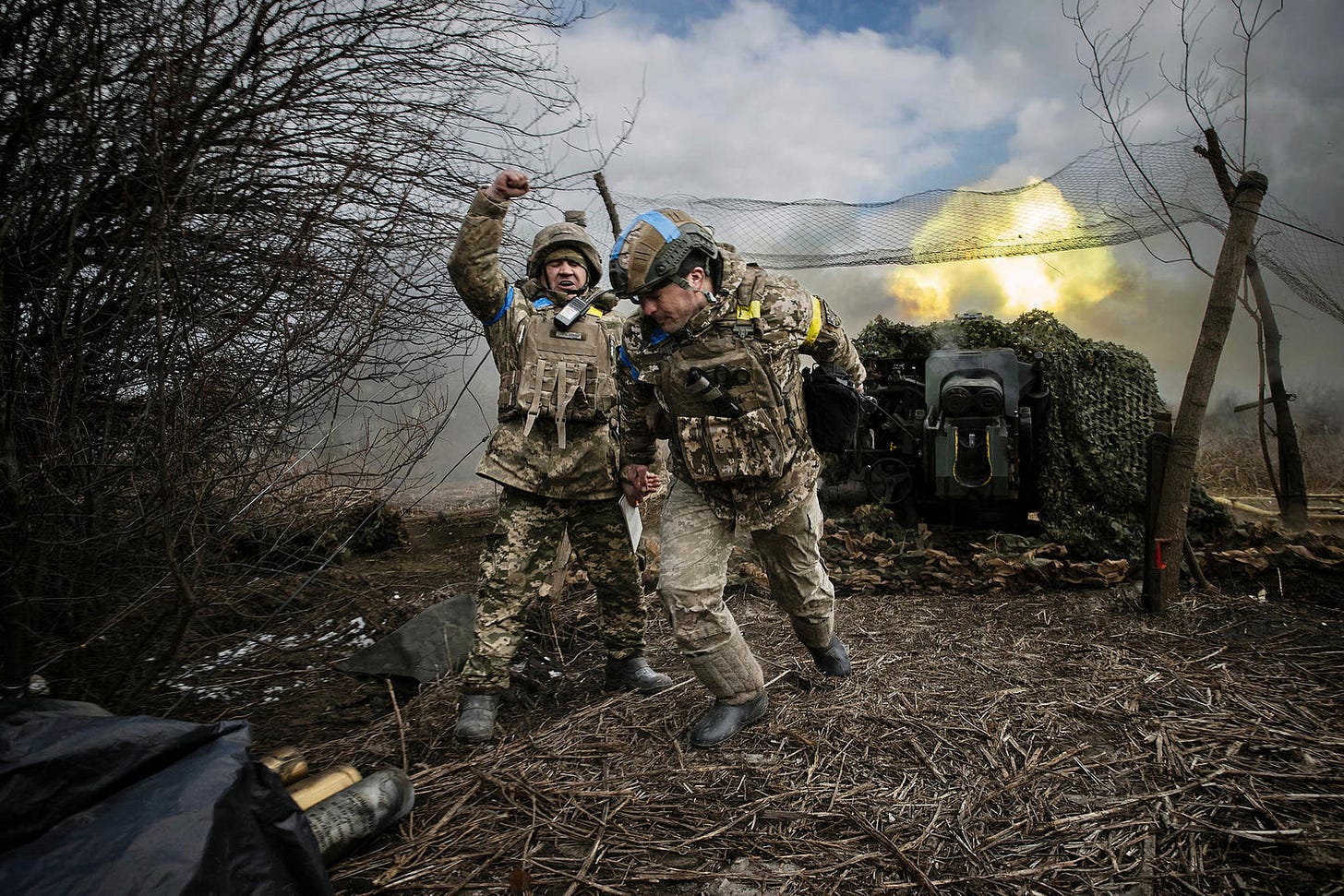A friend of mine, the Russia scholar Michael Kimmage, wrote an excellent essay recently about the failure of Russian strategy, and the growing disconnect between President Biden’s aim of ensuring that strategy’s failure without necessarily aiding in a Ukrainian victory.
The one line I might quibble with is his assertion that “The essence of statecraft is the art of building up future capacity.” Being the Beaufre scholar that I am, I would have written that as “the essence of statecraft is the quest for expanding one’s liberty of action.” Rather, that is the essence of strategy, as Beaufre understood it. I’d argue that that ultimately is what Kimmage is getting at when he writes about Russia’s need to expand its “potential,” and for the West to ensure that Putin has no way out. Meaning, the West must deny Putin liberty of action. It must constrain Putin’s ability to maneuver, maneuver being, to borrow from another one of my strategy references, Admiral Raoul Castex, “creative act,” one that modifies or determines the course of events.”[1] Interestingly, he insisted that maneuver does not necessarily mean physical movement. It could just be an intellectual shift, a different way of thinking about problems. The point ultimately was to do something that might enable one to regain the initiative, and thereby a measure of liberty of action.
Ukraine and its allies must adroitly anticipate Russian efforts to maneuver in the Castexian sense, with the best way being to conduct maneuvers of its own, by always seizing opportunities to take the initiative. The Kursk offensive was a classic example, as well as Ukraine’s daring use of drones to strike targets deep within Russia. More Kurks are needed, so long as no one imagines them resulting—on their own—in a decisive battlefield victory.
Kimmage continues:
Russia’s war-induced strategic nightmare underscores two policy priorities for the West. The first is not to furnish Russia with a way out, not to indulge the dubious thesis that all wars end with negotiated settlements and not to despair at Ukraine’s chances for survival. Ukraine has already proven that it will survive. A hasty negotiated settlement is worse than no settlement at all, and unless it were to fundamentally transform its strategic posture Russia would use any reprieve in the war to regroup, rearm, and reinvade. The second—and related—priority is patience. The only country that can defeat Russia in its war against Ukraine is Russia. This eventual defeat will be Russia’s failure to achieve its military and political objectives, and it will follow from the fact that for Russia the war is futile. More precisely, Russia’s defeat will equal the realization by Russians in power and not in power that the war is futile for Russia. Only with this realization, whenever it comes, will an end to the war begin to materialize.
Here, I fully applaud Kimmage, and would only amend his words to say that Russia’s defeat would stem from the realization by Russians that the war is futile. Decision in war more often than not is about perception and psychology, rather than the outright defeat of the adversary’s army. Ukraine might never be able to achieve a decision on the battlefield. Its attempts so far at a World War II-style encircling maneuver that cuts off and destroys a large enemy formation have proved fruitless (as they did for both sides in World War I), and probably will again and again.
Nonetheless, Ukraine can, with its allies’ help, prevent the Russians from achieving the same, while hammering away at all other opportunities, which include sanctions and the use of international forums to make Russia increasingly an international pariah, the deft use of propaganda, and anything that limits Russia’s opportunities to develop its economy in ways that would serve Russia’s long-term purpose. This might be tantamount to a war of attrition, which, as many people have argued, serves Russia more than it does Ukraine. Ukraine can hang in there, however, so long as the West continue to keep the flow of money and weapons going.
This can work.
For a great book about Russia/Ukraine, see Michael Kimmage’s Collisions: The Origins of the War in Ukraine and the New Global Instability. You can find it here.
[1] Castex, Théories Stratégiques, 1997, VI:192.




